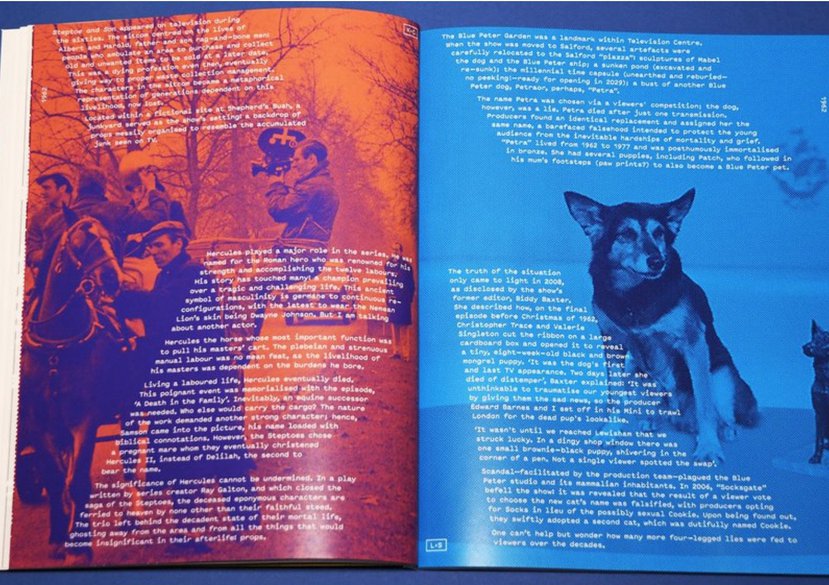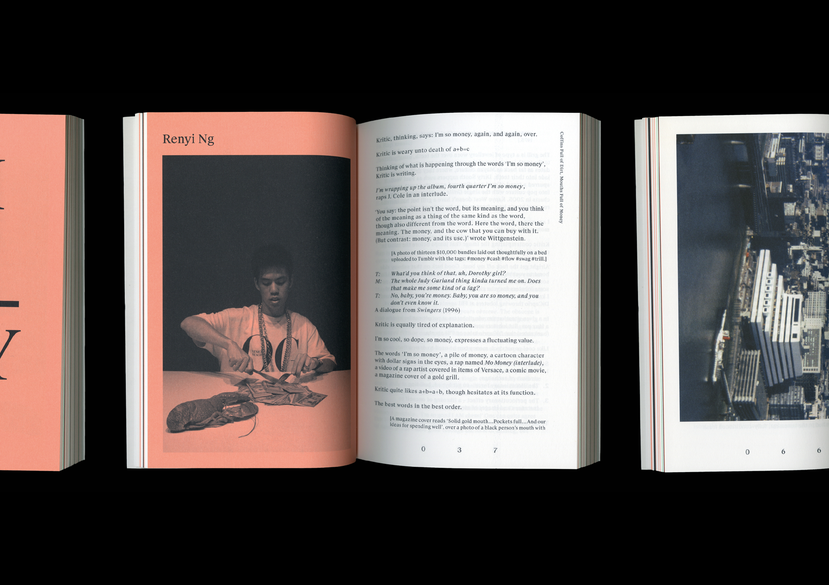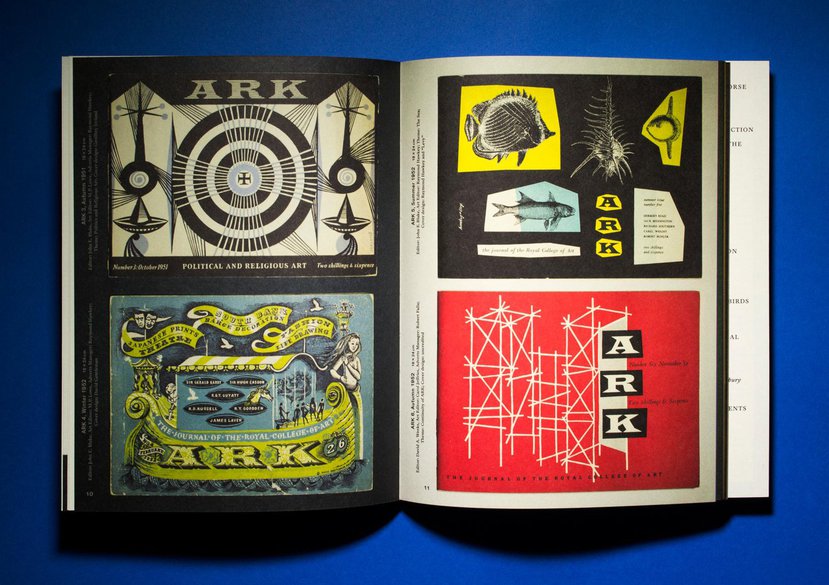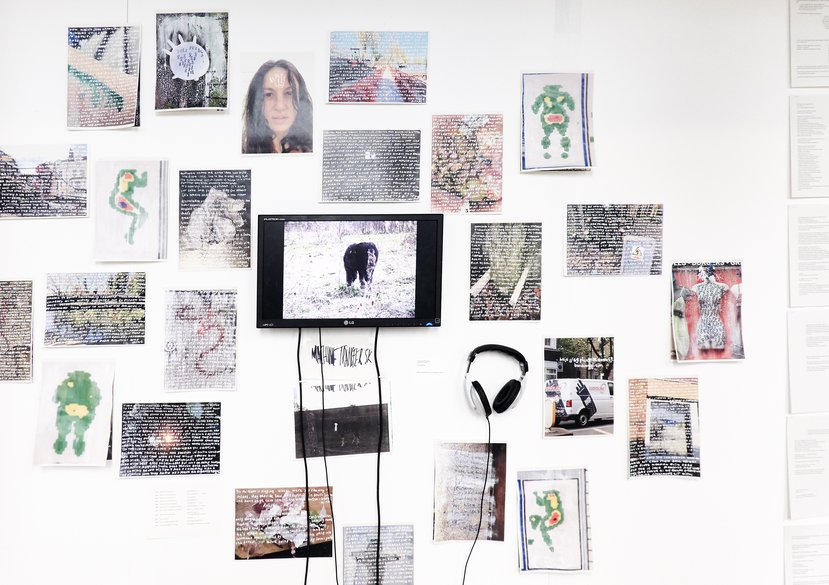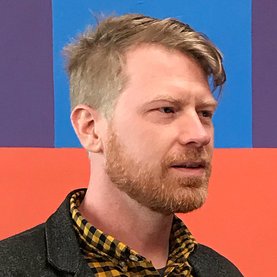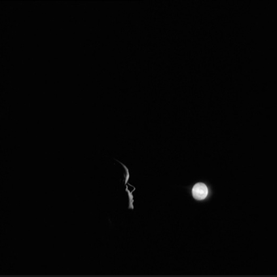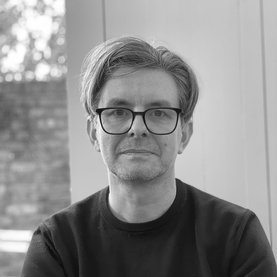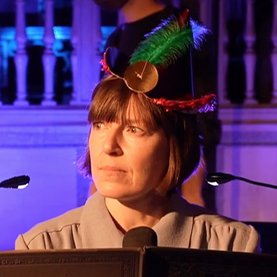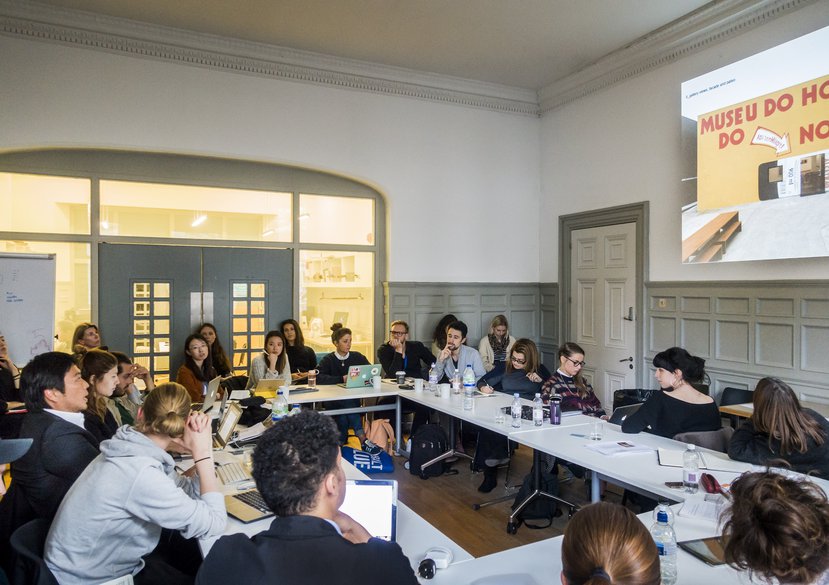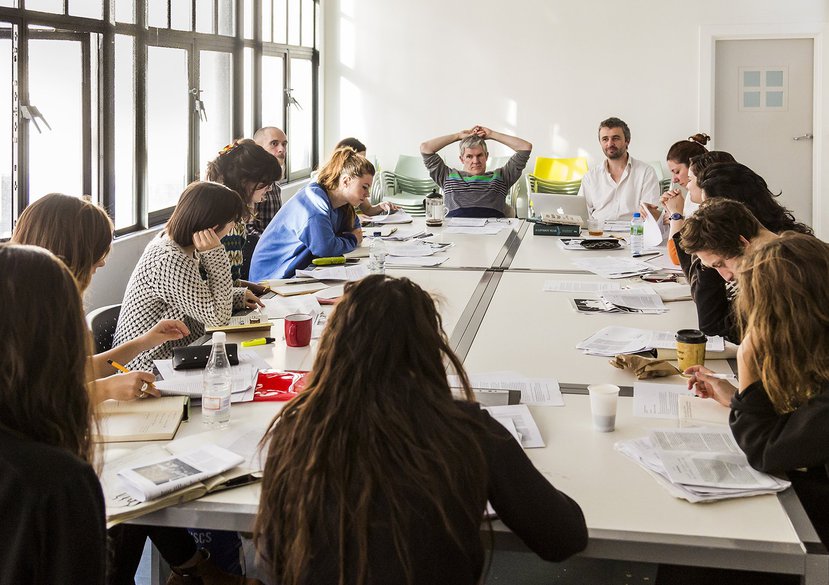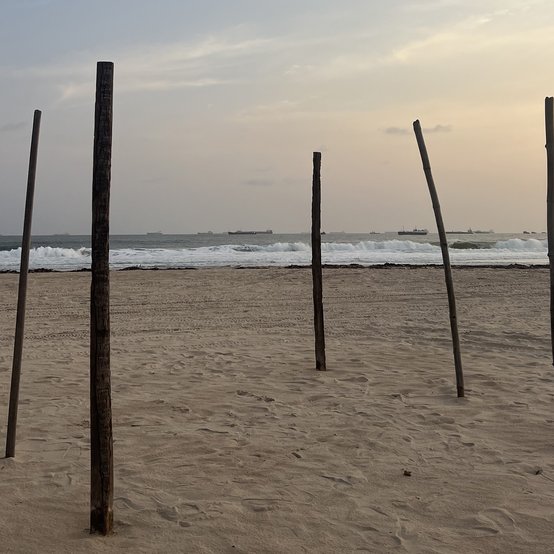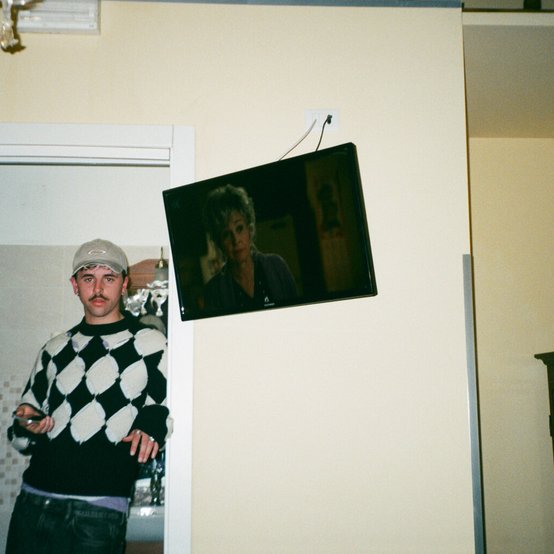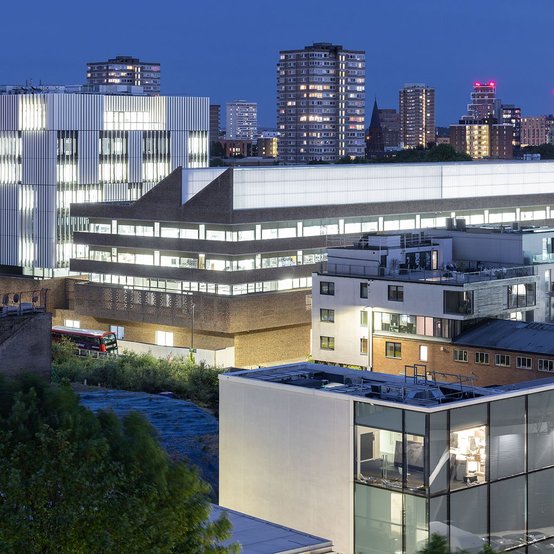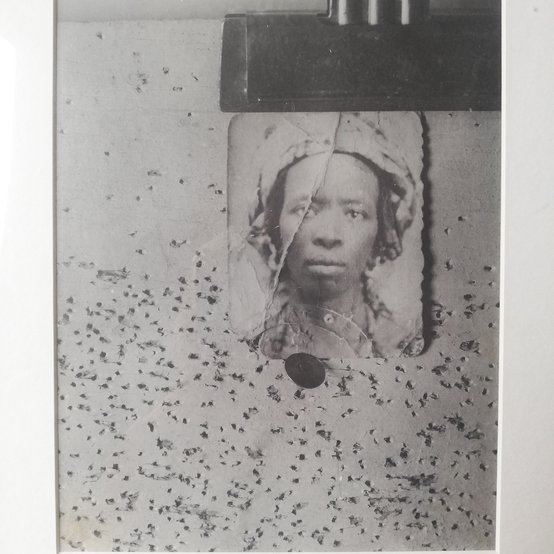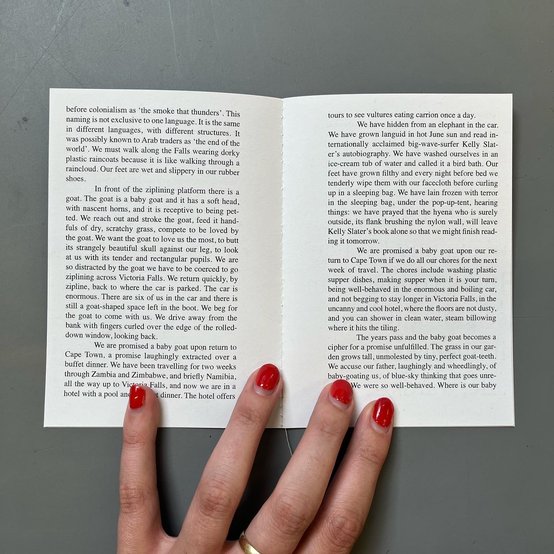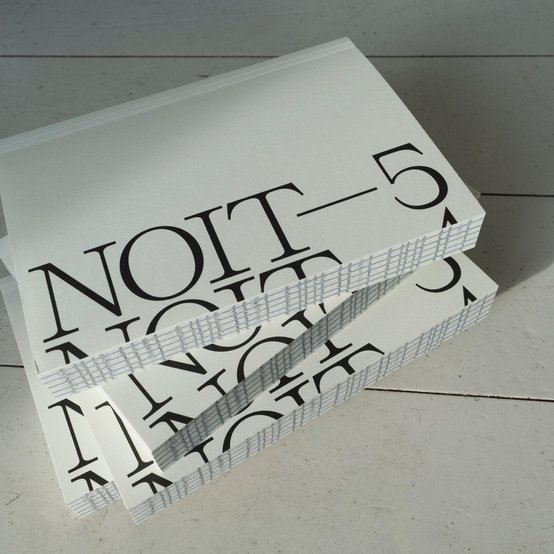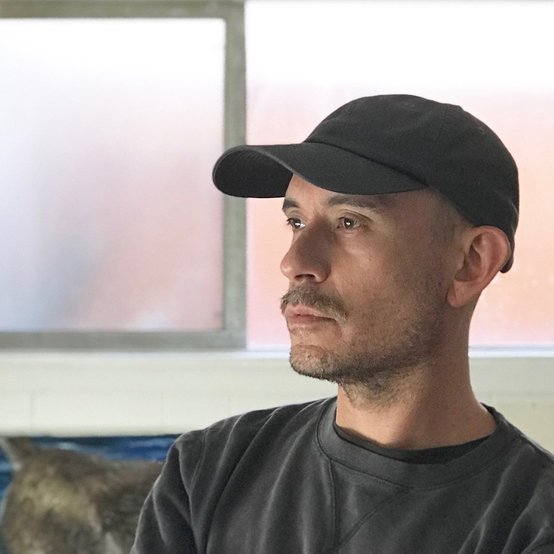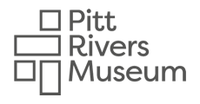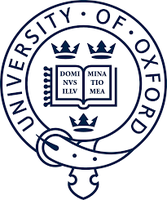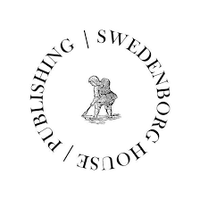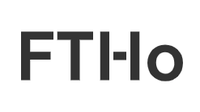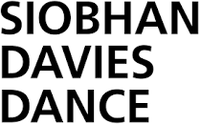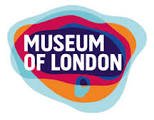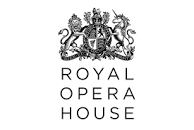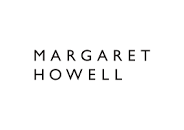
Overview
Become the writer you want to be
Key details
- 180 credits
- 1 year / 45 week programme
- Full-time study
School or Centre
Current location
- Kensington
Next open event
- 6 May 2025
- Join next Online Q&A Week
Round 2 application deadline
- 30 Jun 2025
Career opportunities
- Our graduates can be found editing The White Review, or published by Granta, Zero Books, or Fitzcarraldo Editions. They work as editors on publications, or start up their own, or they pursue a career in academia, with our graduates having followed PhDs in Oxford, Manchester, Edinburgh, Goldsmiths, or Birkbeck, and teaching in numerous prestigious institutions, including the Royal College of Art (RCA).
Develop your intellectual, literary, and technical skills

- Study an MA Writing programme within an arts university and work alongside creative minds and makers
- Complete live projects with our industry partners – past students have worked with Art on the Underground and the Royal Opera House
- Meet a wide range of practitioners, such as writers, editors, publishers and commissioners
Writing is a part of the world, not just about it.
At the RCA, we’re not looking for one type of writer. Whether you want to write for a mainstream audience or prepare for doctoral study, we’ll help you build the intellectual, literary, and technical skills you need for your future.
Our students explore a variety of forms and subjects, often blending genres and approaches to create work that is both intellectually rigorous and poetically expressive.
The RCA writing community
The programme is designed to help you become the best possible version of the writer you want to be. We’ll encourage you to discuss other students’ work, think about what you’re reading, and listen to feedback on your writing.
Not only will you leave the RCA as a better writer, but you’ll also leave us a better thinker. You’ll notice the world and be able to decide the best way to engage with it.
Explore further
Catch the replays from our latest online Open Day.
Gallery
Staff
Facilities
The School of Arts & Humanities is located across our Battersea and Kensington sites.
View all facilitiesYou'll benefit from being part of a vibrant art and design school environment. There are a number of bookable seminar and project spaces across the site available to all Arts & Humanities students.
Our alumni
Our alumni form an international network of creative individuals who have shaped and continue to shape the world. Click on each name to find out more.
Where will the RCA take you?More details on what you'll study.
Find out what you'll cover in this programme.
What you'll cover
What will I learn?
The Writing programme consists of six distinct but complementary units through which you will develop your writing practice. Although we ask you to respond to particular briefs and projects throughout these units, we want you to think of these as parts of your larger writing practice rather than discrete tasks. By the end of the programme, you will have a substantial portfolio of writing and a strong sense of how these works constitute your broader practice and how you might want to develop this further. As such, you can use the programme units both as an opportunity to consolidate your practice and the means by which you might test and extend it, whether by experimenting with form or exploring new areas of enquiry.
Programme structure
Term 1
Unit 1: Distance and Proximity (15 credits)
We are always writing from somewhere, and this unit considers what it means to have a position, whether in relation to a subject or a person. It is often said to be important to maintain a ‘critical distance’ to a subject, and yet ‘close knowledge’ is also greatly valued. How far from — or how close to — a subject might one be to write best about it?
Unit 2: Attention (15 credits)
Attention is one of the foremost qualities of a writer, whether it is turned to the rhythm of a sentence or the cut of a jacket, a political movement or the stillness within a dance. To notice, to discern, to discriminate: all of these things will be considered within this unit.
Unit 3: Publics and Counterpublics (15 credits)
How might we create the public for whom we write? In this unit we will consider how our writing might enter the world, and the effect it might have upon it once it does.
Terms 1&2
AcrossRCA (30 credits)
Across terms 1 and 2, you will participate in AcrossRCA. This unit aims to support you to meet the challenges of a complex, uncertain and changing world by bringing you together to work collaboratively in cross-programme interdisciplinary teams. In your team you will develop a self-initiated themed project, informed by expertise within and beyond the College. These projects will challenge you to collectively use your intellect and imagination to address key cultural, social, environmental and economic challenges. In doing so, you will develop and reflect on the abilities required to translate knowledge into action, and help demonstrate the contribution that the creative arts can make to our understanding and experience of the world.
Term 2
Unit 4: The Practical Past (15 credits)
Research is one of the most important ways by which we engage with the world, and in this unit we will look at how we can develop our research skills to improve our writing practice. As well as reading groups and discussions on various historiographic approaches, you will visit archives, libraries, and other collections to learn how these might be used to extend their practices.
Unit 5: How to Live Together (15 credits)
Writing is often presented as a solitary activity; we prefer to think of it as something collaborative, something that is made with and for others. In this unit you will work together to produce work for a cultural organisation which will be made public; this might be a small publication, for example, or a podcast, or a series of talks.
Urgency of the Arts (15 credits)
In term 2, School of Arts & Humanities Master’s students will participate in a School-wide unit called The Urgency of the Arts. In this unit, we ask how arts and humanities research and practice can engage with our current socio-political climate, and how might it shape, be necessary and essential in contemporary cultural debates.
The unit introduces you to a diverse range of perspectives, approaches and methods relevant to contemporary practice and thought in the arts and humanities. The delivery, predominantly based on workshops and featuring specialist presentations by leading artists, aims to assist you in recognising, questioning, expanding, and reevaluating your own artistic practices and disciplinary assumptions. Through interactions with staff and students from across the School, as well as through a variety of methodological approaches, you will develop an understanding of the contemporary concerns that shape and influence artistic practice. You will be encouraged to reflect on these as a means to articulate the potential of your own work within the context of broad cultural landscapes and urgent cultural debates.
Term 3
Independent Research Project (60 credits)
The IRP is the culmination of the MA Writing programme, and constitutes the largest piece of work to be completed. The form of the IRP is subject to negotiation, but it is suggested that the submission consists of a piece of writing of between 10,000–12,000 words; this might be reduced if the submission also contains other elements, such as a website or other audio-visual materials, for example. Although the IRP consists largely of independent study, it is also supported by individual and group tutorials, and work-in-progress presentations.
The IRP forms the major part of a Portfolio of Practice which also consists of a Practice Statement of no more than 500 words, as well as other contextualising material which contributes to your practice. You will also take part in a public event during which you will present a short extract of your work; your work will also appear in the online event.
This MA is delivered over 45 weeks.
AcrossRCA
AcrossRCA is a compulsory 30-credit unit which is delivered as part of all MA programmes.
Situated at the core of your RCA experience, this ambitious interdisciplinary College-wide unit supports you in responding to the challenges of complex, uncertain and changing physical and digital worlds. Developed in response to student feedback, AcrossRCA creates an exciting opportunity for you to collaborate meaningfully across programmes.
Challenging you to use your imagination and intellect to respond to urgent contemporary themes, this ambitious unit will provide you with the opportunity to:
- make connections across disciplines
- think critically about your creative practice
- develop creative networks within and beyond the College
- generate innovative responses to complex problems
- reflect on how to propose ideas for positive change in local and/or global contexts
AcrossRCA launches with a series of presentations and panel discussions from acclaimed speakers who will introduce the themes and act as inspirational starting points for your collaborative team response.
Delivered online and in-person across two terms, the unit has been designed to complement your disciplinary studies and to provide you with a platform to thrive beyond graduation.
Organisations we've worked with
Requirements
What you need to know before you apply
Candidates are selected entirely on merit and applications are welcomed from all over the world. The selection process will consider creativity, imagination and innovation as demonstrated in your portfolio, as well as your potential to benefit from the programme and to achieve high MA standards overall.
What's needed from you
Portfolio requirements
We’d like you to upload two texts here: firstly, a new review of a recent exhibition, book, or film you think is important (750 words maximum); and secondly, a recent essay on a subject of your choosing (3,000 words maximum; this can be a college essay if you wish).
What we’re looking for in a portfolio is a reason to carry on reading. This can be for many reasons: you might be telling us something about which we know very little, and would like to know more; or you might be telling us something about which we do know, but are asking us to think about it differently; or you might be telling us about something we do know, but in a way we’ve not previously heard. All of these are good reasons, and there are many more. Perhaps you can show us a new one.
Personal statement
Please provide a 300-word written personal statement that addresses the following points:
- Introduce yourself, your interests and your motivations for applying to the Royal College of Art, and to this programme in particular.
- Briefly summarise any educational background and professional experience to date that will support your application.
- Tell us what you want to do in the future.
Video requirements
We ask that you upload a two-minute video recorded on your phone or laptop, speaking to us directly. High production qualities are not needed. We will review the work in your portfolio, so keep your video simple.
We’re looking for many different types of students, and so we’re looking for many different things. You may have started writing and have been published already, but would like to reflect more upon this; you may have been an art student who discovered that they enjoyed writing about their work more than making it; you may have been a student of literature, or philosophy, or art history, and want to explore writing beyond traditional academia. All of these would be good reasons to join us, but you may have another – tell us about it.
Tell us who inspires you, what you’re reading, and where you find out about what’s going on in the world. What do you want to do with us, and what do you want to do with that in the future? In short, tell us how we can help you become the writer you want to be.
English-language requirements
If you are not a national of a majority English-speaking country you will need the equivalent of an IELTS Academic or UKVI score of 6.5 with a 6.0 in the Test of Written English (TWE) and at least 5.5 in other skills. Students achieving a grade of at least 6.0, with a grade of 5.5 in the Test of Written English, may be eligible to take the College’s English for Academic Purposes course to enable them to reach the required standard.
You are exempt from this requirement if you have received a 2.1 degree or above from a university in a majority English-speaking nation within the last five years.
If you need a Student Visa to study at the RCA, you will also need to meet the Home Office’s minimum requirements for entry clearance.
Fees & funding
For this programme
Fees for new students
Fees for September 2025 entry on this programme are outlined below. From 2021 onward, EU students are classified as Overseas for tuition fee purposes.
Home
Overseas and EU
Deposit
New entrants to the College will be required to pay a non-refundable deposit in order to secure their place. This will be offset against the tuition fees.
Home
Overseas and EU
Progression discount
For alumni and students who have completed an RCA Graduate Diploma and progress onto an RCA MA programme, a progression discount of £1,000 is available.
* Total cost is based on the assumption that the programme is completed in the timeframe stated in the programme details. Additional study time may incur additional charges.
Scholarships
Scholarships
The RCA scholarship programme is growing, with hundreds of financial awards planned for the 2025/6 academic year.
For more information and examples of financial awards offered in 2024/25, visit the Scholarships & awards webpage.
You must hold an offer to study on an RCA programme in order to make a scholarship application in Spring 2025. A selection of RCA merit scholarships will also be awarded with programme offers.
We strongly recommend that you apply for your programme as early as possible to stand the best chance of receiving a scholarship. You do not apply directly for individual awards; instead, you will be invited to apply once you have received an offer.
More information
Additional fees
In addition to your programme fees, please be aware that you may incur other additional costs associated with your study during your time at RCA. Additional costs can include purchases and services (without limitation): costs related to the purchase of books, paints, textiles, wood, metal, plastics and/or other materials in connection with your programme, services related to the use of printing and photocopying, lasercutting, 3D printing and CNC. Costs related to attending compulsory field trips, joining student and sport societies, and your Convocation (graduation) ceremony.
If you wish to find out more about what type of additional costs you may incur while studying on your programme, please contact the Head of your Programme to discuss or ask at an online or in person Open Day.
We provide the RCASHOP online, and at our Kensington and Battersea Campuses – this is open to students and staff of the Royal College of Art only to provide paid for materials to support your studies.
We also provide support to our students who require financial assistance whilst studying, including a dedicated Materials Fund.
External funding
There are many funding sources, with some students securing scholarships and others saving money from working. It is impossible to list all the potential funding sources; however, the following information could be useful.
Payments
Tuition fees are due on the first day of the academic year and students are sent an invoice prior to beginning their studies. Payments can be made in advance, on registration or in two instalments.
Start your application
Change your life and be here in 2025. Applications now open.
The Royal College of Art welcomes applicants from all over the world.
Before you begin
Make sure you've read and understood the entrance requirements and key dates.
More information about eligibility and key datesCheck you have all the information you need to apply. Choose the programme you want to apply to and review programme-specific entrance and portfolio requirements on the programme page.
Read our application process guideConsider attending an Open Day, or one of our portfolio or application advice sessions.
See upcoming sessionsPlease note, all applications must be submitted by 12 noon on the given deadline.
Ask a question
Get in touch if you’d like to find out more or have any questions.

